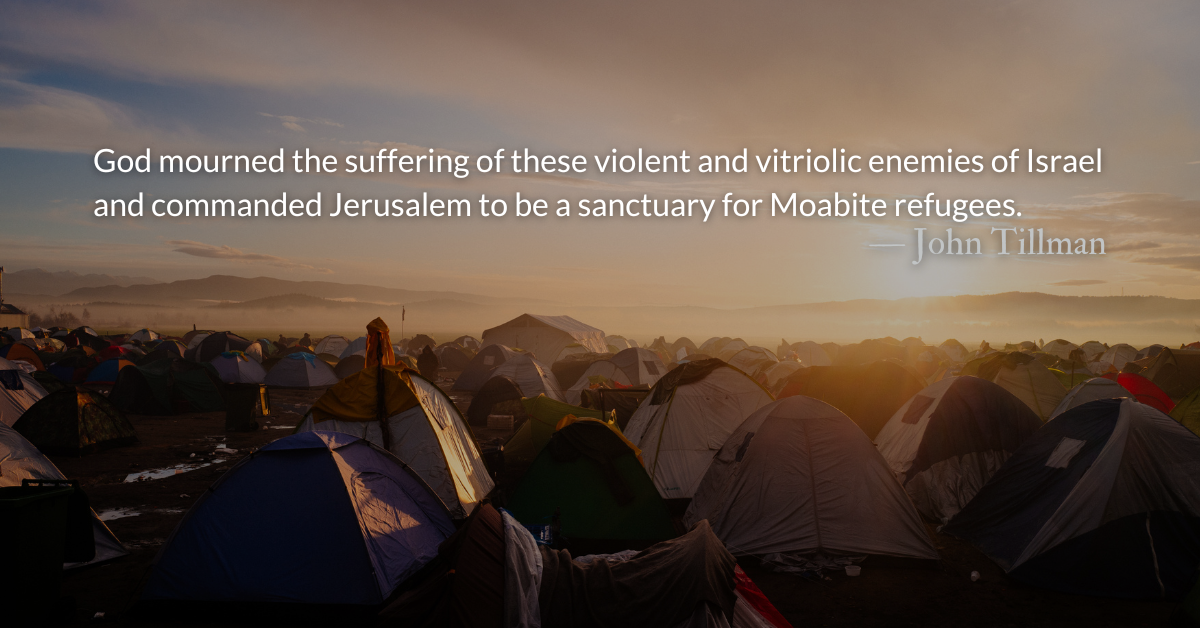Scripture Focus: Isaiah 19.25
25 The Lord Almighty will bless them, saying, “Blessed be Egypt my people, Assyria my handiwork, and Israel my inheritance.
Reflection: Enemies Becoming One People
By John Tillman
Isaiah’s prophecy says the mighty nation will become weak. The wise nation will become foolish. The powerful nation will become enslaved. The hopeful nation will sink into despair. But then, that same humiliated nation will turn its face to God and cry out against its oppressors. Then God will hear from heaven, forgive their sin, defend them, and send a savior to rescue them!
If this sounds familiar, the surprise is the identity of the nation. The nation that will be punished, forgiven, saved, and restored is not Israel or Judah. It’s Egypt.
In Exodus, Moses asked Pharaoh to let “his people,” the Israelites, go into the wilderness to offer sacrifices to God. But in Isaiah’s prophecy, the Egyptians will offer sacrifices and make and keep vows to the Lord. The Lord will make the Egyptians his people alongside Israel and Israel’s other great enemy, Assyria.
God makes former enemies one with his own people.
Some people talk loud and proud about Jesus’ commands to love “one another” or to love “others.” But when Jesus says, “Love your enemies” and “Do good to those that hate you,” they struggle to muster an “amen.”
Christ’s commands to love our enemies have always been controversial and difficult teachings, but in today’s no-holds-barred cultural conflicts, they seem impossible.
When you even talk about loving your enemies, you can be called a traitor. “Don’t you understand how dangerous they are? You are enabling them! Look what they’ve done!”
God knows all this. It’s hard to imagine enemies more dangerous or harder to love than Assyria and Egypt. And yet, loving enemies is God’s plan for the world and his will for our lives.
Level one is loving enemies at a distance. (Prayer and care) Level two is mourning enemies’ losses and sheltering them in their suffering. (Empathy and service) The final level is becoming “one people” with enemies under God. (Integration and unity)
Where are you on this scale?
Do you struggle to love the outsider? The foreigner? The sinner? The ideologue? The liberal? The conservative? Can you imagine being “one people” with them? It’s hard. Everyone you struggle to love is someone God desires to bring into his family just like he brought in you.
You don’t have to violate scripture to show love. But not showing love would be a violation. Let God’s love stretch your imagination, your heart, and your witness.
Divine Hours Prayer: The Call to Prayer
Taste and see that the Lord is good; happy are those who trust in him. — Psalm 34.8
– From The Divine Hours: Prayers for Summertime by Phyllis Tickle.
Today’s Readings
Isaiah 19-20 (Listen 4:49)
Acts 7 (Listen 8:49)
This Weekend’s Readings
Isaiah 21 (Listen 2:32) Acts 8 (Listen 5:10)
Isaiah 22 (Listen 3:53) Acts 9 (Listen 6:05)
Read more about Mourning and Loving Enemies
God mourned the suffering of these enemies of Israel and commanded Jerusalem to be a sanctuary for Moabite refugees.
Read more about Grief for the Guilty
We proclaim God to be just, does compassion and mercy end there? Mercy and justice can burn equally in one’s heart.






